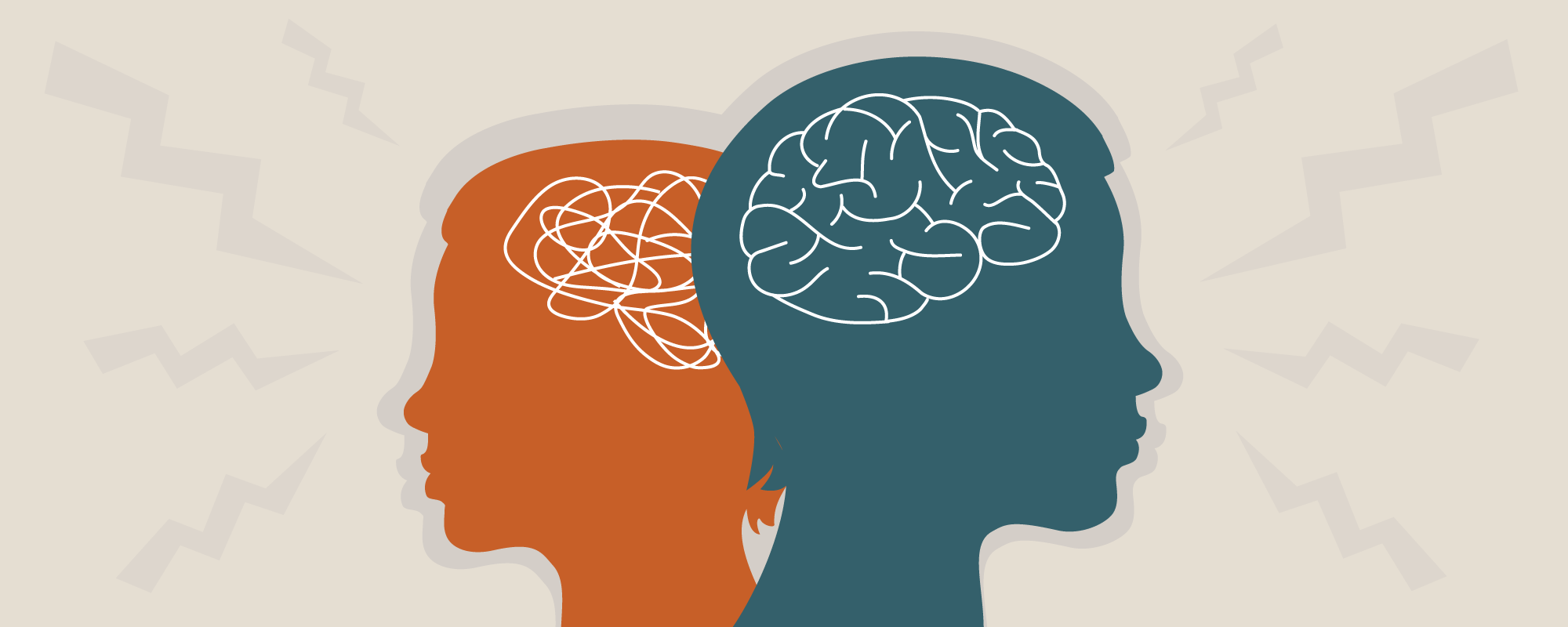Study launches to test effects of vaping on cardio-pulmonary health
The National Institutes of Health have awarded a five-year, $5.7 million grant to UW to study the long-term effects of vaping on heart and lung health.

An analysis of national data by University of Wisconsin School of Medicine and Public Health psychiatry researchers showed that the type of trauma a person experiences could be more impactful than the amount of trauma they encounter in youth.
Justin Russell, research assistant professor of psychiatry, UW School of Medicine and Public Health, and his colleagues, examined data from more than 11,000 children participating in the Adolescent Brain Cognitive Development Study, which is the largest long-term investigation into child health in the United States.
Recognizing the lasting impact of childhood trauma and adversity, a growing number of states are mandating that all children who see a pediatrician complete the Adverse Childhood Experiences questionnaire, or ACEs, which asks about children’s exposure to several types of harmful events or circumstances, Russell said.
The resulting ACEs score is a widely used measure of early life adversity that is broadly predictive of future health problems, he said.
Yet, the ACEs score isn’t a good predictor of specific health problems, and therefore has limited value for medical professionals, according to Russell.
“Critically, it doesn’t take into account how a type of trauma might influence a child, rather it only tabulates the amount of the trauma they faced early in life,” he said. “It’s not just how much happens to you but what happens to you that can shape your future.”
To get a better sense of what might be impacting children and how that might affect them later in life, Russell and his team distilled 268 answers to questions about children’s exposure to negative life events or circumstances from the Adolescent Brain Cognitive Development Study down to eight key types of traumatic or adverse childhood experiences that the UW team called TRACEs: community threat, peer aggression, caregiver maladjustment, chronic pain, discrimination, family conflict, poverty and interpersonal violence.
The data showed that some experiences were actually linked to a decline in expression of some childhood mental health symptoms as children aged.
- Justin Russell
The study was recently published in JAMA Psychiatry.
After dissecting the data from the TRACEs applied to the Adolescent Brain Cognitive Development Study, the results shocked the team, Russell said.
“The data showed that some experiences were actually linked to a decline in expression of some childhood mental health symptoms as children aged,” he said. “We very much expected to see negative psychological impacts in these kids regardless of the type of adversity they reported experiencing.”
However, Russell is quick to caution that apparent improvement of mental health in children who experienced community threat, which is one TRACES category that was correlated with this trend, may not actually be what it seems.
“We suspect that the mental health problems kids report might actually vary depending on the type of adversity they’re living through,” Russell said.
In some children, stress can be helpful, like a certain level of stress related to taking a math test, but only to a point. For example, a dangerous environment could result in behavioral adaptation that leads to suppression of mental health-related symptoms, but that is not the same as developing resilience, he said.
The other possibility, he and his colleagues theorized, was that children who showed a perceived decrease in mental health symptoms may have experienced the peak of psychological impacts of a community threat earlier in their lives.
Russell would like to design a more targeted large-scale study to better examine how types of childhood trauma impact kids later in life because the Adolescent Brain Cognitive Development Study wasn’t designed with TRACEs in mind.
In the meantime, Russell is hopeful policymakers across the country can use this data to allocate resources to address TRACEs in their communities.
“By identifying links between specific types of adversity and mental health problems, we might be able to direct policy and investment in ways that could provide outsized impacts, and generate more value per dollar,” he said.
The work was funded by National Institute of Mental Health grants K01-MH135175, R01-MH128371, R01-MH115910, R01-MH117141, and R01-MH132221. Funding was also provided by a Young Investigator Grant from the Brain & Behavior Research Foundation. The Adolescent Brain Cognitive Development (ABCD) Study was funded by the National Institutes of Health and additional federal partners. A full list of supporters of that study is available.